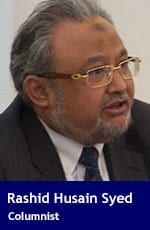 Despite bearish crude oil market signals over the last 10 days, thanks to the Omicron COVID-19 variant and the associated possibility of demand destruction, the Organization of Petroleum Exporting Countries and its allies in the extended OPEC+ opted to veer off a collision course with consumers.
Despite bearish crude oil market signals over the last 10 days, thanks to the Omicron COVID-19 variant and the associated possibility of demand destruction, the Organization of Petroleum Exporting Countries and its allies in the extended OPEC+ opted to veer off a collision course with consumers.
They avoided a knee-jerk reaction and decided instead to pump an additional 400,000 barrels per day (bpd) of crude oil into the markets next month.
Prior to the OPEC+ ministerial meeting last week, there were indications that OPEC+ leaders may re-examine their earlier decision to increase output by 400,000 bpd next month because of the rapidly changing global crude market sentiments.
Analysts speculated that OPEC+ would delay increasing output or lower the incremental volume.
But OPEC+ opted to stay on course.
This led to a big pullback in energy markets, resulting in a sixth straight weekly price decline. On Friday, West Texas Intermediate crude futures posted the longest stretch of weekly losses since 2018.
“Omicron darkened the mood of market sentiment that has been optimistic on demand,” Reed Blakemore, the deputy director at the American think-tank Atlantic Council, told the media.
Pressure on OPEC+ seemed to be yielding some results. In recent weeks, the United States administration has been increasing its pressure on oil-producing nations to ease crude output to cool the markets.
Until last week, OPEC+ seemed determined to ignore any such request.
Consequently, the U.S. opted to increase pressure on OPEC+. A joint co-ordinated move was made to release oil from the strategic reserves of major global consumers. The mood in Washington was getting overtly hostile, and oil-producing nations could hardly miss the point.
In the meantime, Omicron began tearing down global demand and market sentiments. Markets became worried that rising coronavirus cases due to the emergence of the new variant could significantly harm global oil demand. So when the OPEC+ ministers sat down for their virtual meeting on Thursday, they were faced with a twin blow: declining demand and an increasingly hostile United States administration.
This reduced the manoeuvrability of OPEC+. In this cat and mouse game, OPEC+ had little option but to veer off the collision course. “Politics triumphs over economics. Consumer countries mounted enough pressure,” veteran OPEC observer Gary Ross said.
The change in market sentiments meant prices tanked and the focus shifted – at least for the time being – on global crude demand.
 The unpredictable path of the pandemic has impacted global energy markets once again.
The unpredictable path of the pandemic has impacted global energy markets once again.
“The short-term demand outlook was shaky at best and if the U.S. sees new restrictions, the oil market could see a supply surplus by the end of the month,” Julia Fanzeres wrote in Bloomberg, citing Ed Moya, the senior market analyst at Oanda Corp.
But the OPEC+ decision also carries a caveat. While announcing that the group would go ahead with its planned incremental increase in output in January, it also said it would keep an eye on market developments. And if needed, it would immediately convene a meeting (before the next scheduled gathering on Jan. 4) to rethink its output strategy for the next month.
The OPEC+ decision was welcomed by the United States. The U.S. might adjust the timing of its release of some 50 million barrels of crude oil from its strategic petroleum reserve, depending on the direction of oil prices, Reuters reported, citing Deputy Energy Secretary David Turk.
And this meant that both sides finally seemed prepared to accommodate the other. After all the squabbling in recent months, this will be a pleasant surprise for the markets.
Toronto-based Rashid Husain Syed is a respected energy and political analyst, and the Middle East is his area of focus. As well as writing for major local and global newspapers, Rashid is also a regular speaker at major international conferences. He has been asked to provide his perspective on global energy issues by both the Department of Energy in Washington and the International Energy Agency in Paris. For interview requests, click here.
The opinions expressed by our columnists and contributors are theirs alone and do not inherently or expressly reflect the views of our publication.
© Troy Media
Troy Media is an editorial content provider to media outlets and its own hosted community news outlets across Canada.


